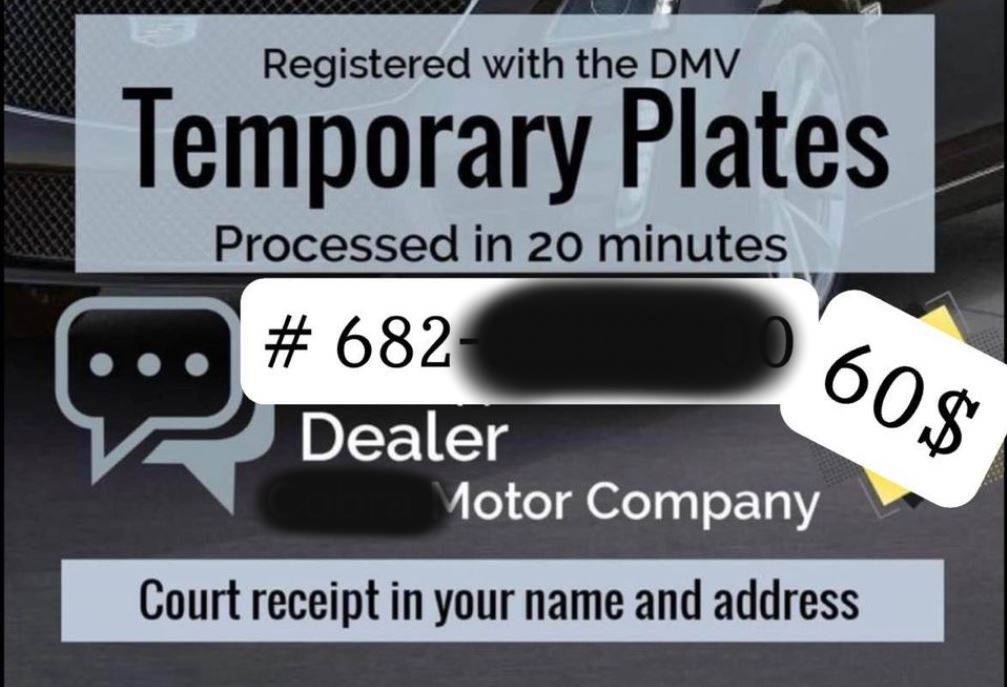MEMPHIS, Tenn. — If you have spent time on Shelby County roadways, you’ve seen plenty of temporary drive-out tags on vehicles.
Turns out, a lot of them are fake, and law enforcement says it’s becoming a real and growing problem.
Fake temporary tags are being used to skirt taxes a vehicle registration fees, and for some drivers, to get around undetected by law enforcement, local authorities say. There’s a ready market for them on the internet.
It’s a crime that can have real consequences.
Clifford and Dorothy Wilkins said on Feb. 5, their daughter Erica was walking along the shoulder of Elvis Presley near Alcy when a car swerved and hit her.
Erica didn’t survive. It was six days before her 39th birthday. She leaves behind three children, the youngest just 5 years old.
“She doesn’t understand. Every day she asks, ‘Where my momma at, is she coming back, is my momma okay?'” Dorothy Wilkins said. “It’s hard to tell a 5-year-old, ‘No baby, your momma ain’t coming back.'”
Police say the driver was in a black Nissan Murano with Tennessee temporary tags. While police don’t know if the tags were legitimate, there’s some suspicion they weren’t, since the driver hasn’t been found.
The family is begging for people to come forward to help police.
Detective Tobey Shaw with the Shelby County Sheriff’s Office says criminals are taking advantage, putting fake tags on stolen cars or while committing crime since they’re hard to trace. Shaw says a lot of the fake tags are made at home with computer software, and more and more are being sold.
But as long as the vehicles are operating within the law, Shaw said there’s no way police can know to stop them.
“We’ve seen cases, countless cases, anywhere to aggravated assaults to shoplifting to kidnapping. Just about anything,” Shaw said. “I actually count them going home sometimes. I’ve counted 20 tags, drive-out tags on the cars.”
We’ve spotted them all over Facebook Marketplace, some as cheap as $20.
We reached out to one of the dealers, who immediately responded saying they were available for $30. We didn’t go through with the purchase, since it’s against the law to hold or use a tag that you know was forged, falsified or altered.
Facebook told us the listings “violate our policies.” They have taken down the ones we sent them, adding, “our enforcement systems are not perfect, but they improve over time.”
Shelby County Clerk Wanda Halbert said she’s seen a tremendous amount of them. At first, she thought the drive-out tags she was seeing were a result of stimulus checks and tax season.
“I thought, wow the market is really good out there for the auto dealers, but then I looked at it, I thought, this is looking different, because there are too many,” Halbert said.
And then, people started sending her office details about counterfeit tags for sale.
“When we discover it or receive notification, we don’t even look into the matter. We just report it to the state,” Halbert said.
The Tennessee Department of Revenue confirms they’ve received Halbert’s reports. No one agreed to an interview, but a spokesperson stated they are working with state agencies and local police.
The state spokesperson said a majority of large dealers transitioned to their EZ Tag program, a web-based service that launched in 2016 to “simplify accounting procedures.”
She shared what that EZ tag looks like, pointing out the state seal and unique bar code that help authorities find out if it’s legit.
Everyone is required by law to register their car. The District Attorney’s office said you can also face felony charges if you’re altering the tags or titles.
In fact, they’ve charged 138 people since January 2019.
Not to mention, when taxes and fees are not collected, it hurts the community.
“You’re stealing from the community. You’re stealing from the public,” Halbert said. “That money goes to our children and funding their education needs.”
Other states implemented new security measures to make it more difficult to produce fake tags. The DMV in Texas told us it added security threads and symbols.
But those are security measures that Tennessee says it hasn’t implemented. And as of now, the state says they don’t have any plans to add additional measures.
Shaw says they’re also working behind the scenes to stop the sellers. There’s an investigation going on right now.







































